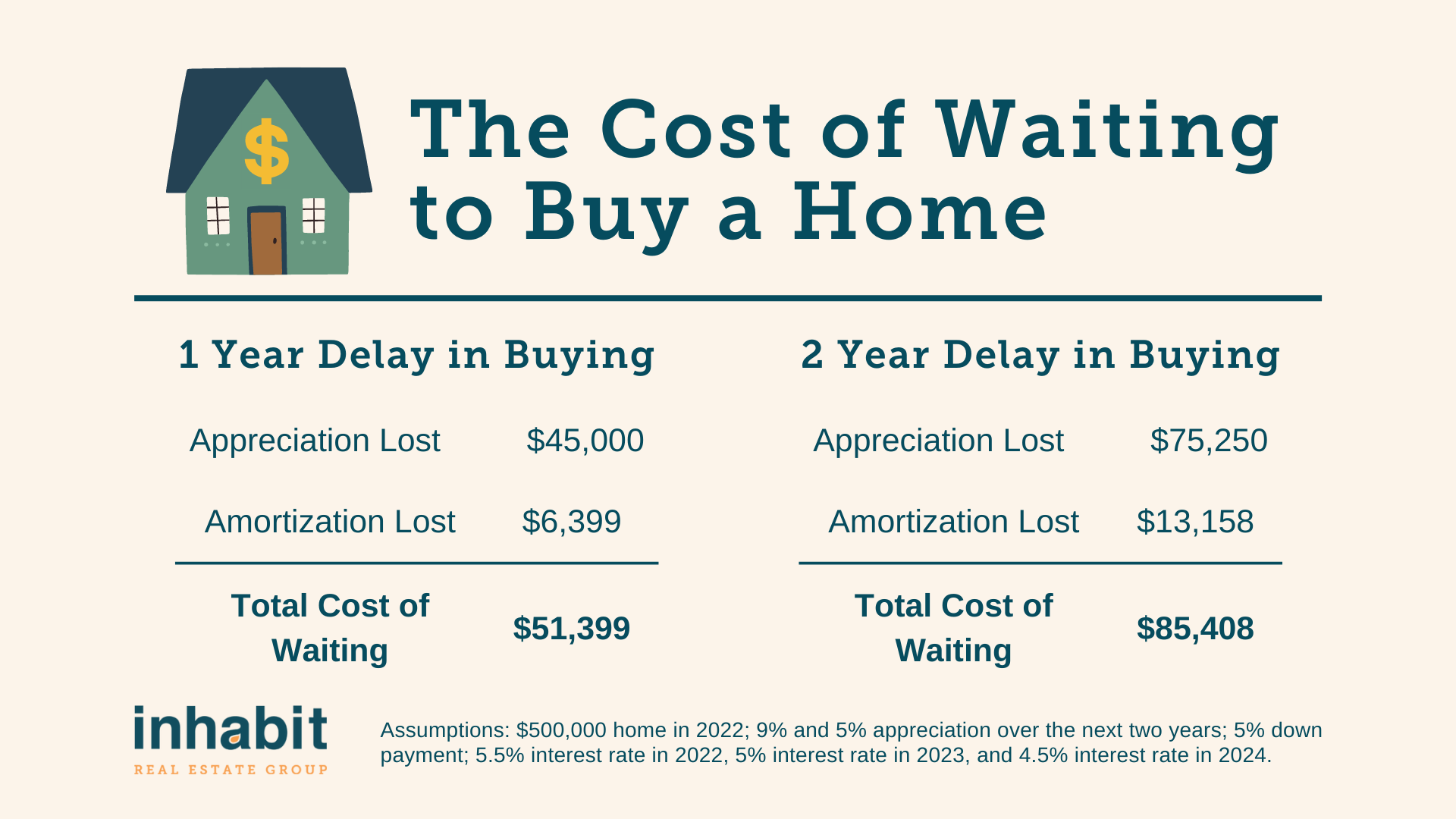If you’ve been paying attention to the housing market, you
know that it has been a very interesting year. Home values are on the rise,
with lots of people wanting to buy and not enough houses to go around. Interest
rates have also gone up. With all this going on, many people are wondering: Is
it still a good time to buy a house? Maybe I should wait.
It’s a valid question! There’s no doubt, there have
definitely been easier times to be a home buyer. However, if you are otherwise
in a position to buy, it’s important to take a step back and look at the big
picture. Though prices and interest rates have gone up, which increase
costs for buyers, it’s possible that the costs of waiting could be even higher.
Let’s break it all down.
Home Prices
Though home prices are on the rise, waiting for them to go
down is not necessarily the prudent choice it may appear to be at first glance.
First, prices are unlikely to go down; just the opposite in fact – they are
predicted to continue rising for some time to come (though at a slower rate
than they are now). So if you are waiting for the bubble to burst… it just
might not happen.
Appreciation
Second, waiting to buy not only means you’re missing out on
the comparatively lower prices available now, you are also missing out on the
appreciation of your purchase.
Let’s say you are interested in buying a $500,000 home now,
but decide to wait. That same home is likely to cost $545,000 next year, and
$572,250 the year after that. (This is assuming an appreciation rate of 9% over
the next year, and of 5% the year after that. This is the average of predictions
made by CoreLogic, The Mortgage Bankers Association, Fannie Mae, and Zillow.[1])
So not only will house prices be more expensive when you decide to look again
in a year or two, but if you had purchased when you originally thought of it,
your purchase would have increased in value significantly – value that you
unfortunately have now missed out on.
Lost Amortization
The lost year or two is also time that you are missing out
on amortization (payoff of your original loan amount, or equity gained).
Let’s say you decided to purchase that $500,000 house now
after all. You paid a $25,000 down payment (5%), and have a 30 year mortgage at
a 5.5% interest rate. In one year you would have shaved off over $6,000 of your
original loan balance. In two, it would be up to $13,000.
Whereas in two years if you hadn’t purchased the home yet,
you’d be at 0% equity, AND have a more expensive price point on that home. Combining
the appreciation and the amortization you missed out on, waiting two years
could cost you roughly $85,000 in this scenario.
Real Estate as Investment
We’ve been talking primarily about the purchase of a home so
far, but all of the above also apply to folks wanting to invest in real estate.
In addition to the above points, real estate is also generally considered a fairly
safe investment, since home values almost always rise over time. If you have
been seeing your stocks take a dip lately, why not consider investing in real
estate for awhile? Some folks even use their self-directed IRA for this
purpose.
Conclusion
Of course, it’s very important to note that all of this
depends on your particular situation. What applies generally may not apply for
you at this exact moment in your life. It is important to determine what is
appropriate for you based on your finances, future plans, and preferences. A conversation
with a trusted real estate or mortgage professional can be a very valuable part
of helping you get the information you need to make these decisions.
Thinking of buying or selling soon? Talk to one of our
experienced agents
today. Special thanks to Jordan Monroe at Legacy Mutual Mortgage
for his expertise and spreadsheets, which were a tremendous help with this post!
[1] Lambert,
Lance. “What home prices will look like in 2023, according to Zillow’s revised
downward forecast.” Pars. 4, 9. April 21, 2022, 3:57 PM CDT) Fortune.com, fortune.com/2022/04/21/zillow-cuts-its-housing-market-and-home-price-forecast-for-2022-and-2023


